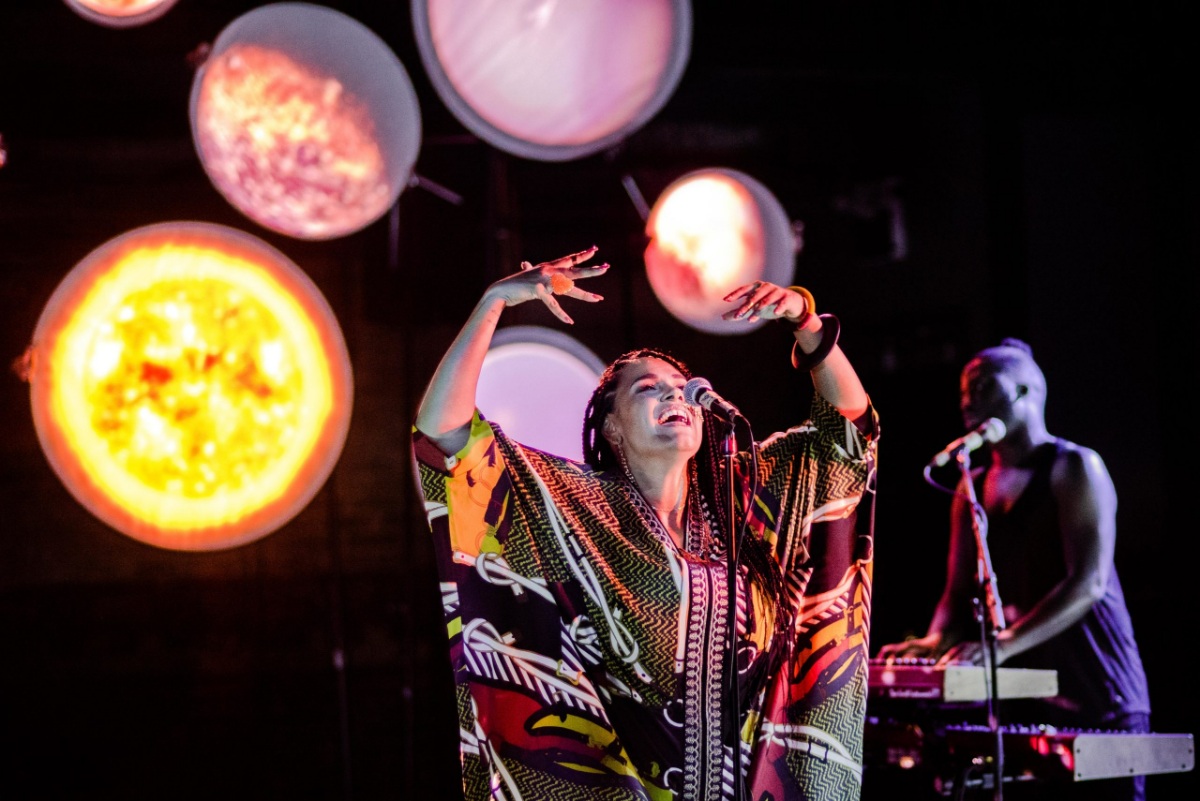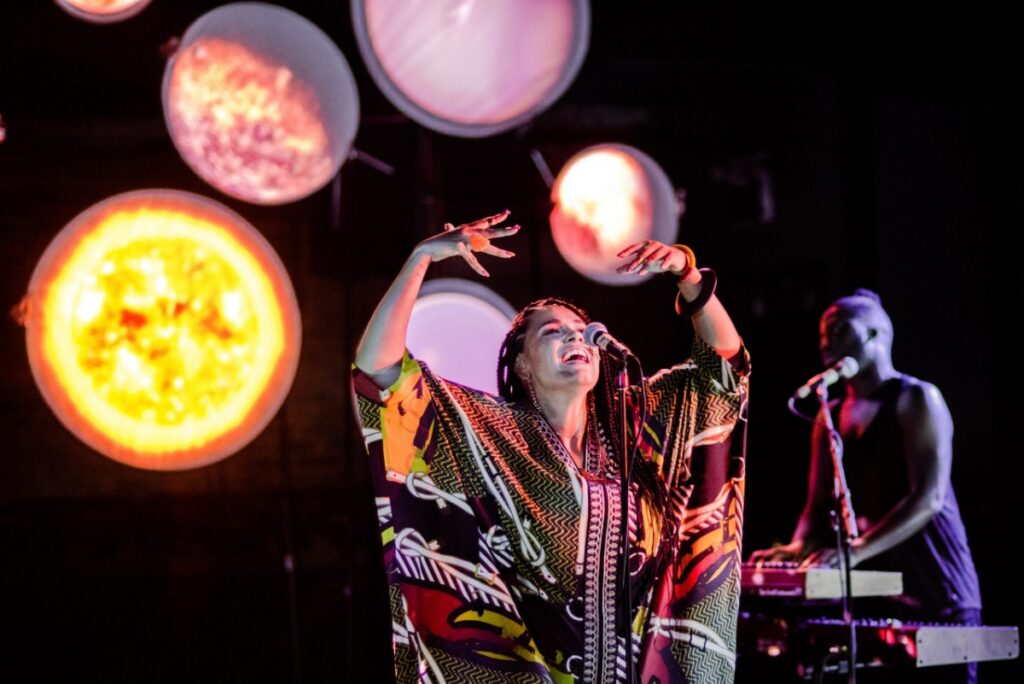
The 2021 Luminato Festival
By Jacqueline Nunes
Toronto’s acclaimed Luminato Festival was first sparked in the darkness. Following the city’s SARS epidemic in 2007, the goal was to help rebuild Toronto as a creative, culturally vibrant, and globally-connected city. After going dark again last year, the contemporary-arts festival will return this October to celebrate its 15th anniversary and our collective love for our city.
“The Luminato Festival is an example of Toronto’s tremendous resilience and is an important beacon of hope,” said Mayor John Tory in the news release. “The arts, as demonstrated by Luminato’s exciting programming, will play a critical role in bringing this city back to life.”
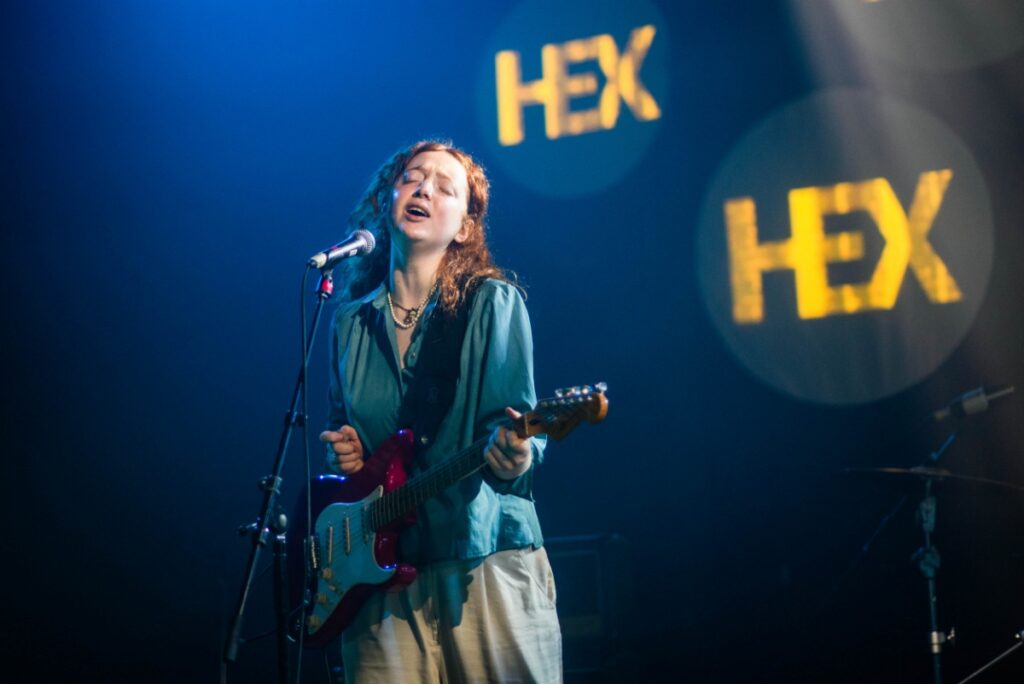
This year’s theme is “Love Letters to Toronto,” and the festival will feature provocative storytelling, musical and theatrical performances, art installations and more, with several original works debuted by renowned Toronto artists. And, it will all be presented virtually. “What’s astonishing to me is that the creativity and the imagination and the energy continues despite all of the lockdowns and restrictions,” says Luminato CEO, Celia Smith. “I can tell you, even though it’s virtual, this will still be the big, bold, beautiful arts festival that you expect from Luminato.”
For nearly two years, the Luminato team has worked on illuminating the path for safe, accessible arts performances. After cancelling the 2020 festival, the team had dreams of an anniversary celebration in 2021 that would fill Toronto’s outside spaces with art, music and performance created entirely by local artists. This would have been a first for the festival, which has always showcased Canadian and international artists, aiming to connect local voices with global conversations. With Ontario locked down in June, the festival was rescheduled for the first time in its history, and the team hired Covid-19 health and safety specialists.
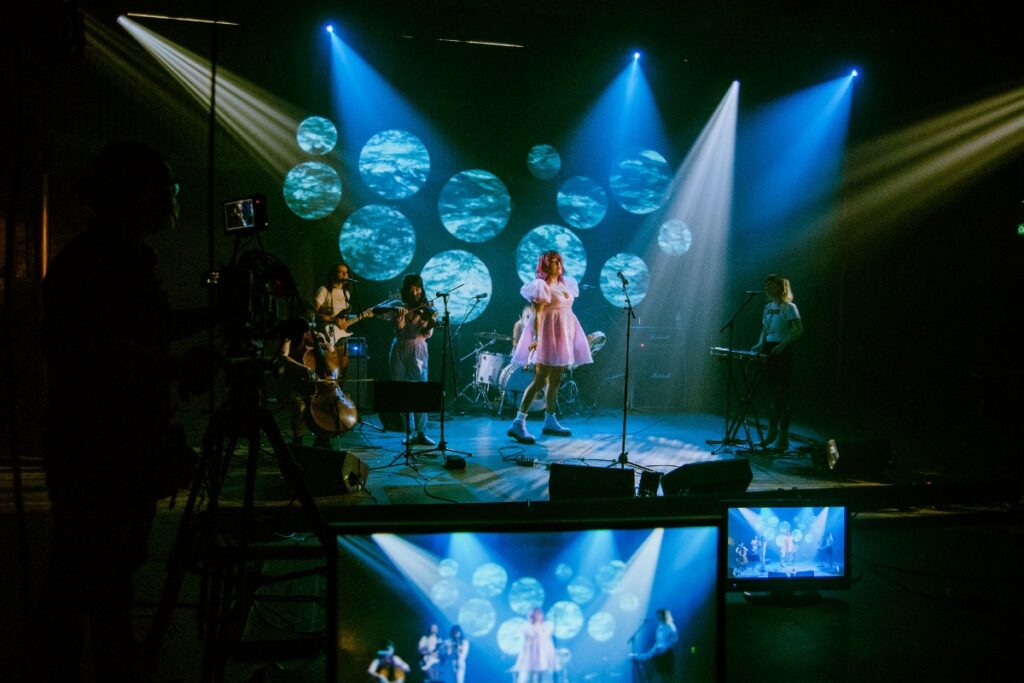
“We held onto that dream for quite a long time and worked on it up until about mid-winter last year,” recalls Smith. But with the unpredictability of the Delta variant, the team finally embraced a fully virtual festival, requiring a massive shift for everyone.
“We’re generally people who produce live experiences,” says Smith. “We had to switch our heads into, ‘What are we creating and how do we film this?’ We’ve had to become film experts.” That included bringing on board local film production companies, directors, editors, and post-productions teams. Everything is being filmed in advance and will be broadcast on the festival website over five days and five nights (October 13-17), with limited on-demand viewing available following the broadcasts. Also in the works are a few small-scale, Covid-friendly events, such as watch parties or concerts, but those will be announced closer to October, when the Covid context is clear.
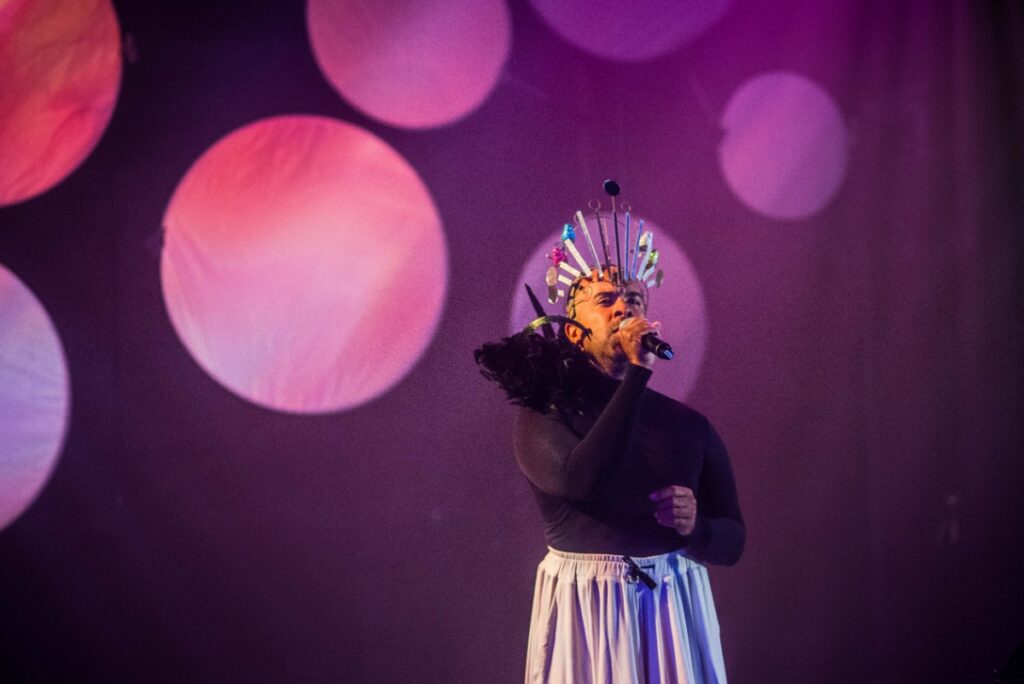
At the time of writing, the team was in the midst of filming one of its marquee shows, the world premiere of Zaagidiwin: The Way We Love Each Other, an Indigenous-led production described as “a moment to reflect on our social responsibilities and our relationship with nature…an adventure (or misadventure) from the land into the city core, revealing its beauty as well as its darkness.” Smith said the film team included more than 50 people, and was filmed at outdoor locations across the city. The festival has also just wrapped the filming of Guided by Starlight: Exploring Toronto’s Musical Galaxy, a 5-part series showcasing Toronto’s vibrant musical history and future, which was filmed at concert venues from Scarborough to Etobicoke.
Two world-renowned Toronto artists will also be featured in this year’s festival. Created for the screens surrounding Toronto’s Yonge-Dundas Square, In the Wake of Progress tells the epic tale of humanity’s impact on the planet through photographs and film from Edward Burtynsky’s 40-year career. Canadian opera singer Measha Brueggergosman will also be featured as she hosts a drive-in Gospel brunch and sings hymns of freedom and resilience, inspired by her own journey of discovery into her roots as a fifth-generation descendant of enslaved people.
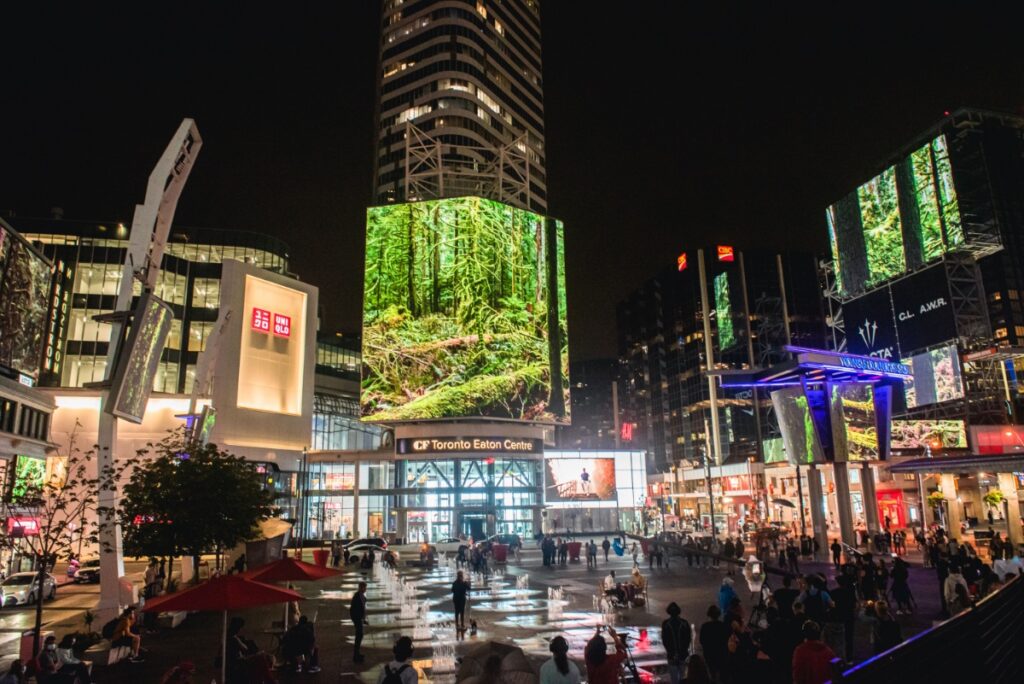
“I’m really focused on how we individually and collectively find our energy again,” says Smith, when asked about her own aspirations for this year’s festival. “How do we, through collective experience, reenergize ourselves? How do we get inspired? How do we feel connected to each other again? How do we feel like we’re part of a larger community?” Alongside the main festival programming, Luminato will also feature podcasts and discussions with artists, performers and many others that make up the community. Edward Burtynsky will meet climate activist Aliénor (Allie) Rougeot for an intergenerational conversation about the climate crisis. Toronto-based activists also will join a panel discussion to explore questions of accountability within police and government, captured live to reflect the situation in the world on October 14th, 2021.
With its new virtual format, Luminato has also had to figure out how to build and engage a digital audience, but these new skills and capacities are bringing new opportunities. According to Smith, “We’re able to talk to people around the world. This year’s festival is accessible to anyone with an Internet connection. Now, we’re thinking about how in the future we’re going to keep that going.” She also emphasizes that the team is already planning for its return to live performances in June 2022. “It will be big and gorgeous and all over the whole Greater Toronto Region, and hopefully we’ll all be back out in the streets and parks together,” says Smith. “Like we should be.”
The 2021 Luminato Festival, “Love Letters to Toronto,” will run virtually from October 13-17 on luminatofestival.com, with select live events adhering to Covid-19 protocols to ensure the safety of artists, technicians and attendees. For the latest updates, visit @Luminato on Twitter.

